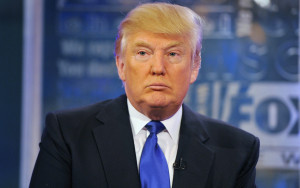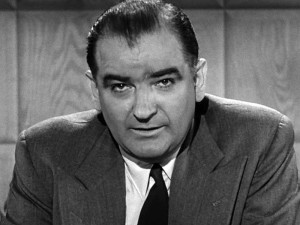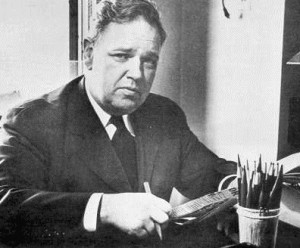I admit to being amazed at the support Donald Trump seems to be getting, not only from what might be called “movement conservatives,” but more specifically, from evangelical Christians. One article indicates that he is the leading candidate among that latter group. I don’t know for sure if that’s true, but if it’s even close to the mark, it’s astonishing.
 I won’t go into detail again (see a previous post) on why I do not support Trump’s candidacy, but I can offer a short summary: supreme arrogance (he says he’s never asked God for forgiveness for anything; constant boasting about how rich he is and how smart); other personal character traits (favorite words being “loser” and “stupid”; resorting to twitter jibes on an adolescent level toward those who criticize him); and his recent “conversion” to conservative policies.
I won’t go into detail again (see a previous post) on why I do not support Trump’s candidacy, but I can offer a short summary: supreme arrogance (he says he’s never asked God for forgiveness for anything; constant boasting about how rich he is and how smart); other personal character traits (favorite words being “loser” and “stupid”; resorting to twitter jibes on an adolescent level toward those who criticize him); and his recent “conversion” to conservative policies.
On that last point, some have tried to compare his change to conservatism to Ronald Reagan’s. I’ve studied Reagan in some depth and know that his worldview changed over time as a result of intense study and grappling with foundational philosophical issues. I’m not convinced that is the case with Trump; neither do I trust him to remain true to what he now says he believes.
In fact, he’s rather mixed up on some things: he claims to be for repealing Obamacare, yet says a universal, government-run healthcare system is workable in some countries. He doesn’t quite say why he considers it unworkable here. Perhaps he really doesn’t. Perhaps, were he to attain the presidency, we might be subject to another failed promise from a politician.
 I’m also seeing a historical parallel with another situation. Back in the early 1950s, Sen. Joe McCarthy made a big splash as a crusader against communism. He was bold and brash and developed a large following. Many in conservatism at the time saw him as the leader against the establishment and flocked to his bandwagon. Yet he was little more than an opportunist, seizing on a hot topic that he did not really grasp clearly.
I’m also seeing a historical parallel with another situation. Back in the early 1950s, Sen. Joe McCarthy made a big splash as a crusader against communism. He was bold and brash and developed a large following. Many in conservatism at the time saw him as the leader against the establishment and flocked to his bandwagon. Yet he was little more than an opportunist, seizing on a hot topic that he did not really grasp clearly.
As evidence for this conclusion, I turn to Whittaker Chambers, a genuine champion of liberty who left the communist underground, gave his witness to Congress, and suffered publicly for doing so. Yet he succeeded in unmasking the underground movement, with the climax being the conviction of Alger Hiss—who had been his compatriot in the underground and then became a top State Department official—for perjury.
McCarthy wanted to tie his crusade to Chambers. They met. Chambers came away with some rather pointed comments about the senator. In a letter to William F. Buckley, Chambers summarized McCarthy’s approach in this way: “Senator McCarthy’s notion of tactics is to break the rules, saturate the enemy with poison gas, and then charge through the contaminated area, shouting Comanche war cries.”
 These heavy-handed tactics were of deep concern to Chambers, who wrote:
These heavy-handed tactics were of deep concern to Chambers, who wrote:
I know he thinks this is a superior technique that the rest of us are too far behind to appreciate. But it is repetitious and unartful, and, with time, the repeated dull thud of the low blow may prove to be the real factor in his undoing. Not necessarily because the blow is low, or because he lacks heart and purpose, but because he lacks variety, and, in the end, simply puts the audience to sleep.
He tried not to come to a rash judgment, but concluded, “It is more and more my reluctant opinion that he is a tactician, rather than a strategist; that he continually, by reflex rather than calculation, sacrifices the long view for the short pull.”
What worried him the most was the damage McCarthy would do over time:
In fact, it is no exaggeration to say that we live in terror that Senator McCarthy will one day make some irreparable blunder which will play directly into the hands of our common enemy and discredit the whole anti-Communist effort for a long while to come.
Chambers was correct: McCarthy stumbled on his own arrogance and ignorance; his actions discredited anti-communist efforts to this day.
Personally, I have those same fears about Donald Trump. Everything Chambers said about McCarthy looms in my mind when I hear Trump speak, and I am concerned that his nomination, let alone his possible election as president, may be the death knell for true conservatism, and Christians who currently look past his character failings will one day regret their willful blindness.
There are some who say that God doesn’t need a committed Christian to accomplish his purposes, that He can use someone who is terribly flawed and not in touch with Him to carry out His will.
I understand that position. God does work in all situations. He did use Nebuchadnezzar to carry out His judgments on His people of Israel. But that was for the purpose of punishment for sin. Frankly, He has a lot of politicians to choose from if He is ready to unleash His judgment on America. Trump is not unique in that sense.
Since when do we deliberately choose a spiritual renegade over a committed Christian man or woman who is seeking to do His will? Those men and women do exist, and some are running for president right now. Why would we throw our support behind someone who is more egocentric than anyone else in the political realm?
I don’t want to have to defend myself before God after making a choice like that. I’m going to give my vote to someone who at least has a heart for righteousness and the God who defines what is and is not righteous.
If Trump is the Republican nominee, we may be destroying whatever remains of principle in that party. If he should ever be elected president, we may see in that office someone who is a combination of Nebuchadnezzar and Joe McCarthy. He may be the channel for God’s judgment, but I will not willingly go that route. I still want to help save America.
My musings in this post will not be accepted by all, I know. But I hope you will, at the very least, avoid being caught up in an emotional appeal and will take some time to reflect on the concerns I have expressed here. May the Lord have mercy on us all.
